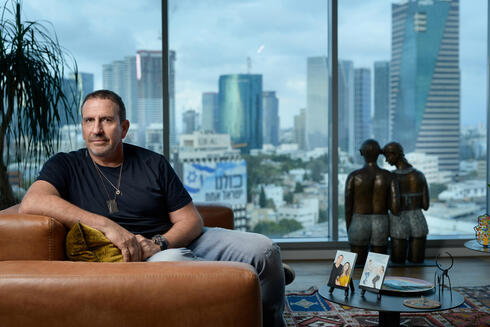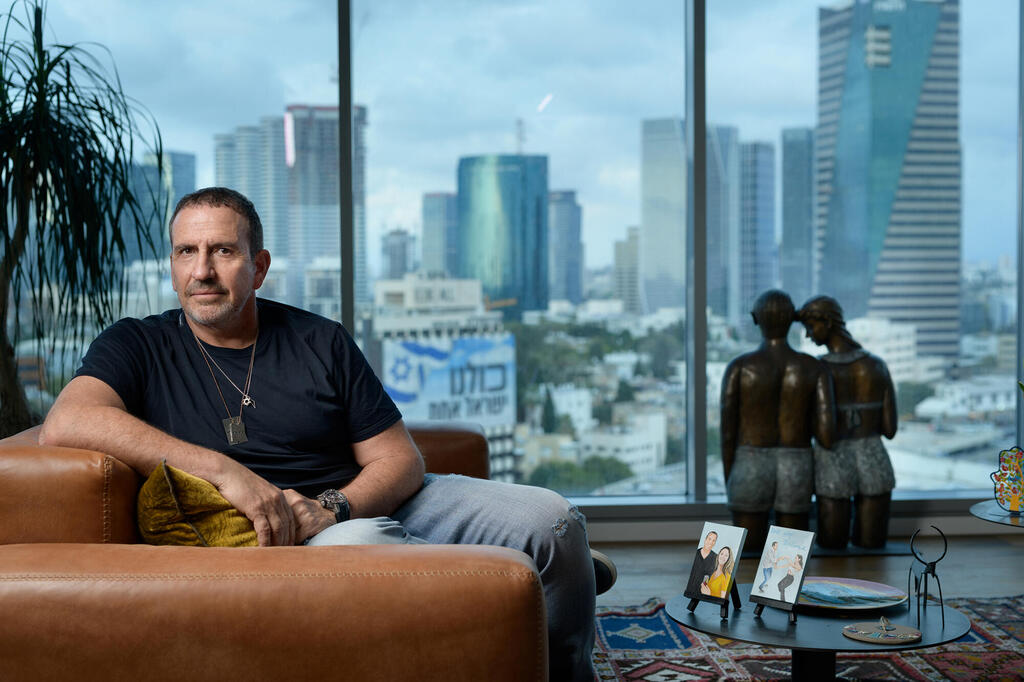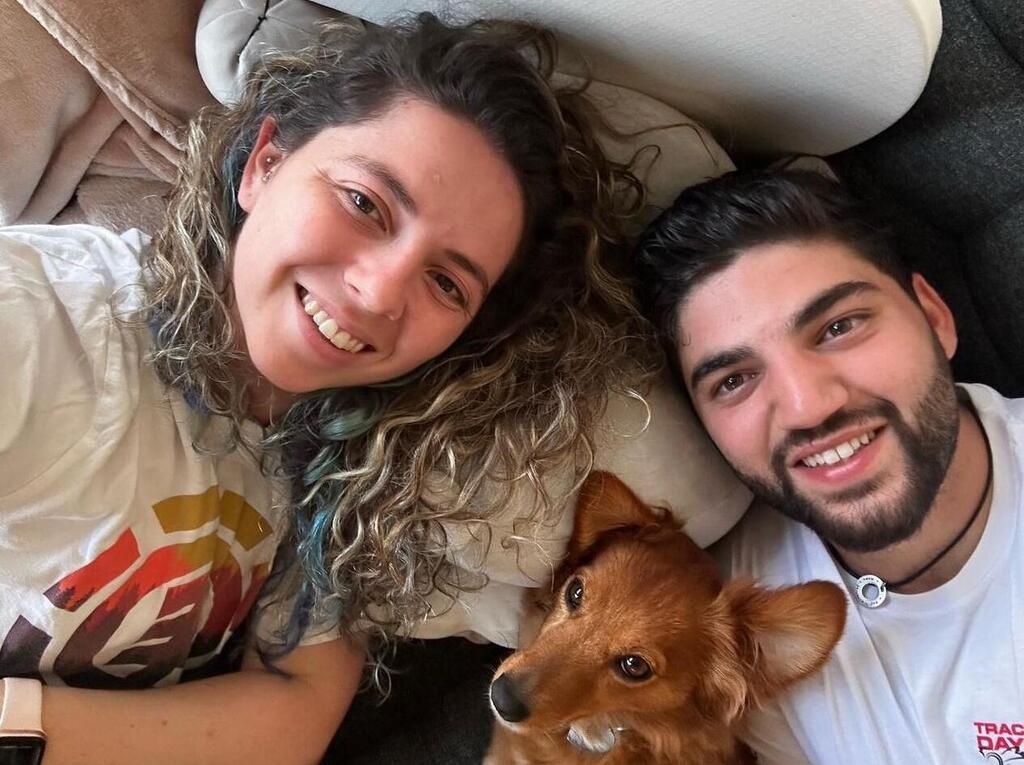
The man who sold Mellanox to Nvidia now fears Israel is losing its edge
Mellanox founder Eyal Waldman warns that continued emigration, poor leadership, and war fatigue could jeopardize Israel’s future as a tech superpower.
Eyal Waldman, the founder of Mellanox—which was sold to Nvidia for $6.9 billion in 2019—and now an active investor, paid the most painful personal price on October 7. His daughter Danielle was murdered at the Nova music festival alongside her partner. The loss came after years of Waldman advocating for Palestinian employment from Gaza and the West Bank and promoting the importance of a political resolution to the Israeli-Palestinian conflict. On social media, Waldman still appears a strong businessman, enjoying life’s pleasures, but a single mention of his daughter brings tears to his eyes.
We’re in the middle of Passover, the holiday of freedom. When will freedom and joy return?
“There are families whose homes will never again be filled with complete joy. I hope that those who are struggling can find a way forward, and remember that their loved ones would want them to be happy. Right now, we need to bring the hostages and soldiers home.”
Is ‘holiday’ even a word that applies to a bereaved parent?
“No. Not just because of Danielle. We must strike everyone who harmed her, and we are doing it, one by one. But this is also about the hostages. Still, we have to go on living. I lost an uncle when I was 11. I lost nearly 10 friends in the army. We must live and build, and ensure the future of this country. That’s our role. The children would want us to live, not suffer. Danielle would want that for me. So we try to put the pain in a place we can sometimes control. Sometimes it works. Sometimes it doesn’t.”
What’s most pressing right now?
“Nothing is more important than bringing the hostages home. I’ve traveled to three countries to help with that. There are tools, there are options. Everyone—including Arab states—understands Hamas cannot remain in Gaza. Hamas itself knows its time is up. We must end the war and move into the ‘day after.’ Take a breath, return the hostages, and normalize the region. There’s a rare opportunity—once in a century—in Syria and Lebanon. We must take care of Gaza’s post-war reality: security, governance, education, and health.”
Your daughter Danielle was nearly taken hostage.
“Almog Sarousi, who was in the car with her, was kidnapped and later murdered. Danielle was injured and lay there for hours. No one came. I know she screamed. We heard the recordings from the car.”
Would you support an all-for-all deal? Or a phased release?
“It doesn’t matter. The worst approach is ‘all or nothing.’ Anyone who can be saved—must be saved. Every minute in captivity feels like years.”
"This country swallows its inhabitants"
News about the growing emigration of high-tech workers and millionaires from Israel worries Waldman deeply. “Reports show 1,700 millionaires have already left. The Stanford report says more Israeli AI talent is leaving than entering, reversing the previous trend. On LinkedIn, 10,000 Israelis have updated foreign locations. People are asking me to help them find jobs in New York, Greece, Houston. To stop this, the government must change. I don’t see a single qualified Likud minister. The prime minister appoints weak people. If another 50-60,000 people like those who are leaving now go—we have a serious problem.”
Do you think about leaving too?
“We need to reach elections. Netanyahu has 68 seats, and there’s no way to force early elections. But if Likud wins again, I will have a problem staying here. This country swallows its own. Of course I don’t want to leave—my daughter was murdered here. My uncle was killed in the War of Attrition. I lost friends here. But if you feel the people in charge aren’t fit, and the public keeps electing them—then maybe it’s not your place.”
Isn’t there a patriotic instinct to stay and fight?
“People don’t want to live in a country where Ben Gvir and Smotrich decide their children’s futures. But yes—stay and fight. It’s important to fight for this country from within. You can’t do it from abroad.”
Have you thought about entering politics?
“I hear calls for it. I hope I don’t have to. I’d prefer others more qualified step up. But I’m doing a lot behind the scenes—funding programs for young people, soldiers. Millions of shekels. I won’t go into details. But this situation—hostages held for nearly a year and a half, a prime minister who won’t take responsibility, firing the head of the Shin Bet during an investigation—what have we come to?”
On Trump, Gaza, and what comes next
Could a Trump-Musk-style arrangement work for you?
“It could. I’m willing to help this country in many ways.”
Are you involved in Gaza planning?
“I’m working on it. There’s an American plan with 14 NATO countries. I brought in four Arab countries. It’s not popular with this government, but I believe it will eventually be adopted. We need to plan for the day after—security first, then education, governance, health. I don’t think Israel will play a major role in reconstruction.”
But there’s little hope of a Gazan uprising. Hamas rules by fear.
“People must rise against Hamas. They are being used as human shields. Just recently Hamas tortured and killed one of the protest leaders in Gaza. People must save themselves and their families. If protests are big enough, maybe they’ll finally be free.”
Were you surprised by Trump’s stance on Israel?
“He’s a loyal friend. He’s working with Steven Witkoff on a hostage deal. He treats everything like a high-stakes negotiation, which is good. I respect that. I hope he brings the hostages home.”
What about Trump’s ideas for Gaza? Do they make sense?
“Trump is a businessman. He stakes a claim and negotiates from there. He floated transferring Gazans to Jordan and Egypt. That won’t happen, but it’s his way of opening talks. He’s right that Gaza could have been like the Emirates. They poured billions into tunnels and hatred. When we left Gaza, it was flourishing. It could be again.”
Does the Palestinian Authority still matter?
“They need new leadership—honest, capable, courageous. There’s at least one person I believe could lead both the West Bank and Gaza, but I won’t name him. In 1973, Egypt was our enemy. Four years later, we had peace. Begin had the courage to invite Sadat to speak in the Knesset. That’s what we need now: brave leaders willing to talk peace. I hope we can reach that point within five years.”
"Tariffs? It would have been better gradually"
Donald Trump’s directive earlier this month to raise tariffs on dozens of countries sent shockwaves through the markets. The most aggressive move targeted Chinese products, raising tariffs to a record 145%—a hit to technology companies like Apple, which manufactures most of its products in China, and, ultimately, to American consumers. Facing backlash, Trump quickly excluded semiconductors, smartphones, and computers. He also froze increased tariffs on 75 other countries, including European nations, for 90 days to allow time for negotiations.
How do you interpret Trump’s tariff policy?
“In some areas, he says, ‘We’re paying trillions around the world—it can’t be on our taxpayers’ backs.’ He’s trying to reduce the U.S. debt, and tariffs are one of the tools. But in my view, he’s going about it too aggressively. He should communicate differently. He’s also trying to curb drug smuggling from Canada, Mexico, and China. One type of drug alone killed 75,000 Americans. Until he spoke up, no one was doing anything. I understand some of what he’s doing, but the market upheaval is dangerous. We need to ensure it doesn’t lead to a global crisis. I would’ve gone at it more gradually—not with a five-kilo hammer.”
The markets initially plunged. Then, within hours, he froze the tariffs and stocks soared. The result: a rally not seen since 2008.
“Trump uses the economy as a political tool—and that’s fine. I even like some of it. He knows how to move the markets. It’s fascinating.”
Is it rational strategy or bullying?
“He’s a tough businessman. He gets what he wants through force and aggression. What he did to Zelensky was harsh, but it produced results. Zelensky offered a 30-day ceasefire—something he hadn’t proposed before. We’re also stuck with the hostage issue. Maybe we need to use a five-kilo hammer there too: surgical, painful strikes at precise targets in Gaza. But humanitarian aid is a problem too. We have to find a way to stop Hamas from profiting off it while still getting aid to those who need it.”
“Markets reflect fear, but they bounce back”
The initial market reaction was negative. Doesn’t that signal skepticism about Trump’s goals?
“Markets reflect fear and uncertainty. Investors step back and then return. I’ve seen this in past crises—markets rebound, often stronger. Elon Musk even said, ‘Even if I lose money, the goal is more important than profits.’ I agree. Sometimes we must accept economic pain to achieve higher goals. It can pay off in the long run.”
Do you agree with Trump that the U.S. is being exploited?
“Yes. The U.S. is footing the bill for everyone—including Israel, Egypt, and Europe. Europe’s in trouble because its sugar daddy is walking away. Now it must solve its own problems. That can be good for us, too. We should use these crises to do the right thing—economically and politically.”
“Even Israel wasn’t exempt”
There was an expectation Israel would be exempt from the tariffs. But Netanyahu had to ease restrictions on U.S. imports.
“Why did we expect special treatment? Even under Biden’s AI export rules, Israel isn’t among the 11 countries allowed access to the most advanced AI technologies. We’re in the second circle.”
Will Mellanox, now under Nvidia, be affected?
“No. It’s exporting from the U.S., so it’s protected. The risk is from Chinese retaliation. But Nvidia is strong—just like Mellanox was. Even companies that didn’t want to work with us had to, because they needed our products. Same now with Nvidia. Their products are indispensable. I don’t think they’ll be hurt.”
Will this deter companies from wanting to be 'American'?
“The bigger issue is that investors are avoiding Israeli companies because of the political instability here. With this government, legal reforms—call it a legal coup if you want—it’s scaring people. I’m still investing here because I live here, but I have no preference.”
Wiz was sold to Google for $32 billion. With a U.S. owner, will operations shift to India to cut costs? Was an IPO a better route?
“Wiz’s exit was amazing. When they got a $23 billion offer from Google, their $100 billion valuation goal sounded aggressive. But congrats to Assaf Rappaport and his team. I believe development will stay in Israel. Mellanox grew post-acquisition. Thousands got rich. Nvidia’s stock soared.”
“Even if you don’t like them—You talk to them”
You were photographed with the Prime Minister of Qatar. Some asked: how could you, after what happened to your daughter?
“As a businessman, you deal with people you don’t like to achieve goals. Biden removed Qatar from the talks; Trump brought them back in. So yes, I work with them. In business, you also work with competitors or those you dislike. We’re at a dead end—I hope Witkoff helps us out of it.”
What about the suffering in Gaza, and the images spreading worldwide?
“When I was in Europe, a Palestinian from Gaza said, ‘You freed four hostages but killed 40, including my relatives.’ I told her: I have no problem with that. Our hostages shouldn’t have been there. If Hamas uses civilians as human shields, it’s on them. We want peace, but those who hurt us—let their blood be on their own heads. Also, we must cut off Hamas’s funding. Anyone who rerouted USAID funds to Hamas committed a crime.”
“If Netanyahu’s people took Qatari money—It’s treason”
If any of Netanyahu’s advisors took money from Qatar, how serious is that?
“If true, it’s treason. There’s no other word. Passing Qatari messages from the PM’s Office under the guise of working for Israel, spreading claims like ‘the Egyptian army wants war’—it’s a betrayal. Whether Bibi knew or not, it’s a major problem.”
“Use the economic hammer on the Haredim”
How do you break the Haredi parties’ grip?
“Like Trump: with a five-kilo hammer. You don’t work? Don’t study core subjects? Don’t serve? No child benefits, no subsidized daycare. Dozens of Haredim went to work after losing daycare subsidies. That’s how it should be. Don’t issue licenses, don’t allow foreign travel. Eventually, they’ll serve and work—and be great soldiers. Most of the Haredi community is positive, but their leaders are leading them astray.”
Is Trumpism—the carrot-and-stick economic model—the future?
“It’s the mindset of: ‘Set a goal and do whatever it takes.’ No excuses. I’d do things differently than Trump, but I also wouldn’t give up. You increase pressure until you get results. Same with the Haredim—they must be compelled to join the economy and army.”
You recently posted a video of the police commissioner standing with Ben Gvir and affirming loyalty to the High Court. Why?
“To salute him. I wrote, ‘Respect to the commissioner. We will listen to the High Court and preserve democracy.’ He’s doing his job, and he’s doing it well. It reassured me deeply.”

















